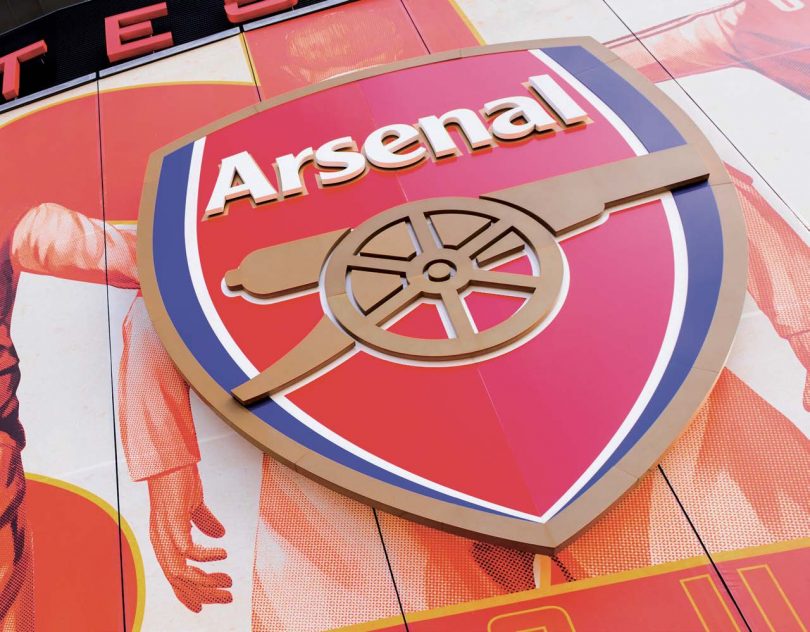Arsène Wenger started with a bang at Arsenal, but after more than a decade of mediocre results it looks like his time in charge of the famous London club is coming to an end.
The 2017/2018 Premier League season runs until May and in the remaining weeks, Arsenal might still achieve some vital results. The Europa League title, for example, remains within reach and if they can qualify for next season’s Champions League by lifting the trophy, the pain of missing out on a top four EPL finish may be eased after all.
Nevertheless, Arsène Wenger’s dissenters are getting louder by the day. The veteran coach will certainly find solidarity in legendary Manchester United manager Sir Alex Ferguson, who was once his fiercest competitor. But to some extent, Wenger must envy his old foe. When Ferguson retired from Old Trafford, he had just won another Premier League title and passed the baton to his handpicked successor David Moyes while still at his peak. It was a fairytale finale that Wenger is almost certain to miss out on in north London.
Wenger’s managerial career at Arsenal, which began in 1996, has seen him win the Premier League three times and FA Cup seven times, but since his last League title in 2003/04 the London club has rarely challenged for top honors – nor has it ever looked like rivaling the big guns in Europe. For seven successive seasons up to 2016/2017, Arsenal was eliminated in the last 16 of the Champions League, a clear sign of their diminishing European power.
It got even worse in 2016/17 with the Gunners finishing fifth in the league to miss out on the Champions League completely. It was the first time this millennium that Arsène Wengerʼs men had missed out on the UEFA Champions League group stage, halting a 19-season run.
The clock is now ticking, casting a dark shadow on Wenger’s tenure in north London. After years of relatively mediocre performances, Arsenal are now on a clear downhill path. After 30 matches of this year’s Premier League season, Arsenal was trailing leaders Manchester City by a massive 30 points while there was a 12-point gap between them and fourth placed Liverpool. Their domestic results continue to deteriorate.
There are many reasons for the decline of Arsenal in recent years, the most significant being their transfer dealings. The fact that Arsenal lost their talisman Alexis Sánchez in exchange for Henrikh Mkhitaryan plus cash in a deal with Manchester United epitomized the problem within – they too often fail to keep world-class players and their replacements are not good enough to steer the ship.
No team in the world is immune to the problem of losing key players. Liverpool failed to stop Luis Suárez and Philippe Coutinho from leaving, while Barcelona themselves lost Neymar to Paris Saint Germain. Both Cristiano Ronaldo and Gareth Bale waved farewell to their Premier League teams and joined Real Madrid.
But the thing that worries Arsenal fans most is that Wenger is still reluctant to spend the big money needed to lure the world’s best players. In October 1996, when Wenger was selected as Arsenal’s new manager, he took over the duties of scouting, transfers and even contract negotiation of the squad. His education in Economics helped him conduct shrewd business, which is reflected in Arsenal’s very healthy finances over the years.
However, modern football has evolved – natural instincts and a good scouting network no longer speaks as loudly as dollar signs. In the current Arsenal squad, it is hard to see the next Patrick Vieira, Nicolas Anelka or Robin Van Persie.
Wenger rejects holistic change to the way the club is managed. When he agreed to exchange Sánchez with Mkhitaryan, the Armenian was not even in United’s starting side. Clearly the Frenchman’s football philosophy stubbornly came into play in making that deal. At the same time, Wenger has declined to listen to voices from the stands. A recent poll found that 88 per cent of the Arsenal Supporters Trust’s 1,000 members voted in favor of the 68-year-old’s contract being terminated at the end of the season.
In response to such dissent, Wenger chose to shut his ears, doing his best to avoid hearing criticism from the fans as well as club greats such as Thierry Henry and Martin Keown.
Asked about the many banners reading “Wenger Out”, the Frenchman replied, “Itʼs not the person they hate, they hate the manager who doesn’t deliver the performance. I can make that difference.” Like a “mad king”, Wenger’s stubbornness proved his determination that, under his reign, there will be no major shift in managerial direction any time soon.
But every club needs to respond swiftly when the team begins a downhill slide. Past glories mean little in the present. Kenny Daglish, one of the most successful players and coaches for Liverpool, couldn’t escape that fate when the Reds struggled on the pitch. Manchester United sacked coach David Moyes after just one season despite Ferguson having recommended him. United’s current manager, José Mourinho, has a different football philosophy from Ferguson, but has gradually made his mark.
Stagnation will not bring Arsenal any miracles. And with that in mind, it seems only a matter of time before the once great manager’s Arsenal career comes to an end.







